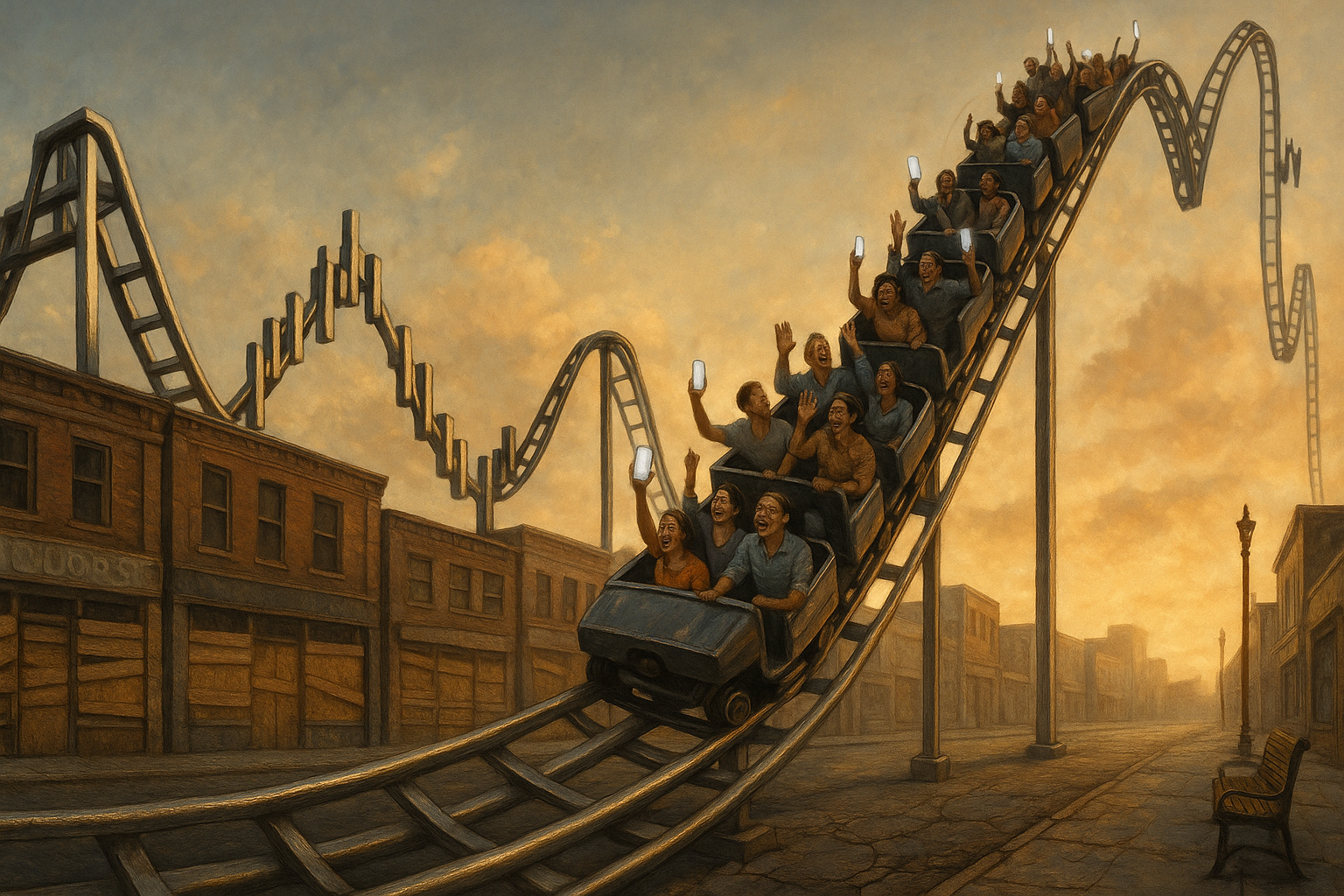I've covered financial markets for nearly a decade, and I'll just say it plainly: we're witnessing what might be the dumbest stock market in modern history.
The S&P 500 keeps smashing records while the actual economy... doesn't. Tesla somehow became worth more than the entire German auto industry combined. And remember GameStop? A brick-and-mortar video game retailer with a business model straight outta 2005 turned into a market sensation because Reddit decided it should be. Not exactly textbook investing behavior.
Look, markets can divorce themselves from reality for extended periods. I've seen this movie before. But this particular disconnect feels different—more extreme, more persistent, and frankly, more absurd.
What's actually happening underneath these frothy valuations? Inflation that was supposed to be a quick visitor has instead moved in and rearranged the furniture. The Fed's been hiking interest rates to levels we haven't seen in ages. Global conflicts are spreading faster than rumors at a small-town diner.
And yet... stocks just keep climbing.
The conventional explanation is that markets are "forward-looking," already pricing in some rosy future where all these problems magically resolve themselves. But here's a radical thought—what if this market has simply lost its capacity for rational thought?
I'm not insulting individual investors here (though some probably deserve it). I'm talking about a collective irrationality that's taken hold. Companies announce terrible earnings and their stocks jump anyway. Literal joke cryptocurrencies reach billion-dollar valuations overnight.
What's driving this madness?
Part of it stems from what some analysts call "the boredom markets hypothesis." During the pandemic, millions of people got stuck at home, downloaded trading apps, received stimulus money, and decided they were suddenly financial geniuses. Investing morphed into entertainment.
And that transformation hasn't reversed itself.
Then there's FOMO—fear of missing out. Nobody wants to be sitting on cash while watching their neighbor's portfolio double. This creates a dangerous self-reinforcing cycle: stocks rise because people expect them to rise, which makes them go up more, which validates the belief that led to buying in the first place.
Until suddenly it doesn't.
(I should note that I've interviewed dozens of retail investors over the past year, and almost none mentioned fundamentals as their primary reason for buying.)
Market manias aren't new, of course. From Dutch tulips to dot-com stocks, we humans excel at collective financial delusion. What makes our current situation unique is the perfect storm of factors amplifying the stupidity.
Social media accelerates information—and misinformation—at unprecedented speeds. Commission-free trading removes barriers. Algorithmic trading amplifies momentum in both directions. We've inadvertently built the world's most efficient bubble machine.
So what happens next?
I won't pretend to know when gravity reasserts itself—timing markets is for fools and liars. But the disconnect between economic fundamentals and market prices cannot persist indefinitely. That's not a prediction; it's math.
For the average investor, this means acknowledging we're in bizarre territory. Diversification isn't just some boring concept from finance textbooks—it's protection against collective market insanity. And maintaining perspective helps. When future financial historians write about the 2020s market, it'll read like satire.
Could I be completely wrong? Maybe. Perhaps we've truly entered a new paradigm where stocks only go up and fundamentals are as relevant as a fax machine.
But I doubt it.
The dumbest market in history will eventually wise up. And when it does, it's going to be a painful education for those who mistook a bull market for brilliance.
